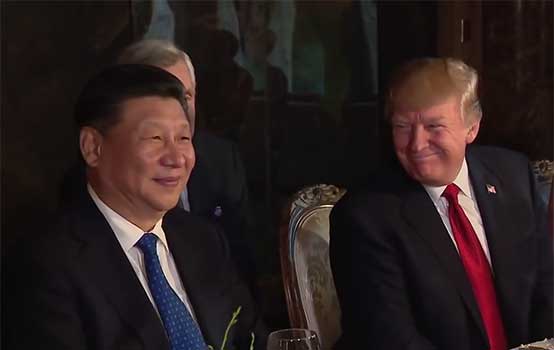Trump’s National Security ‘Strategy’ and the Great Powers

The Trump administration is unveiling its National Security Strategy (NSS) today:
President Trump’s first national security strategy envisions a world in which the United States confronts two “revisionist” powers — China and Russia — that are seeking to change the global status quo, often to the detriment of America’s interests.
The administration has recently provided previews of the “strategy,” and we know enough that we can say that it offers no more of a strategy than Trump’s Iran speech did. If the Iran “strategy” was little more than a list of grievances against Tehran, the NSS itself seems to be a list of aspirations with no discussion of matching means and ends or setting priorities. The document may be somewhat useful as a reflection of the administration’s assumptions, but it is still unclear how much of it Trump actually accepts and how much influence it will have on what administration does in the future.
The NYT report suggests that Trump is very pleased with the document, and that is why he will be speaking about it later today:
The president, his aides said, enthusiastically approved the strategy and wanted to present it himself, something that his two immediate predecessors, Barack Obama and George W. Bush, did not do when their congressionally mandated strategies were published.
Trump’s decision to present the “strategy” himself will presumably draw more attention to it and cause other governments to give the statement more weight than would have otherwise been the case. It will be more difficult for other governments to discount what the document says when Trump has identified himself so closely with it.
Framing relations with Russia and China in terms of zero-sum competition will make it more difficult to obtain their cooperation on a range of issues. Casting them as “revisionist powers” treats the other major powers mainly as adversaries to be thwarted, and that suggests that the administration is moving towards a needlessly antagonistic policy with both states. The wording from the document would seem to confirm that:
“These competitions require the United States to rethink the policies of the past two decades — policies based on the assumption that engagement with rivals and their inclusion in international institutions and global commerce would turn them into benign actors and trustworthy partners,” the document continues. “For the most part, this premise turned out to be false.”
If the administration is rethinking the wisdom of engagement with Russia and China and inclusion of them in international institutions and commerce, that seems to imply a desire to reverse course. If that’s right, this implies that the administration wants to emphasize confrontation and exclusion in its dealings with the other major powers, and it is hard to see how that leads to anything except a stronger partnership between Moscow and Beijing opposed to the U.S. The danger of this “strategy” is twofold: it likely increases tensions with both major powers in Eurasia at the same time, and it gives them added incentive for them to work together against the U.S.
Trump will probably refer to this “strategy” as the product of “principled realism,” but that won’t make it so. An administration conducting a realist foreign policy would not gratuitously call out the other major powers in the world when the U.S. needs their assistance on a number of international issues, and it would not pit them both against the U.S. at the same time. We didn’t really need more proof that Trump isn’t a realist, but this statement of the administration’s “strategy” gives us exactly that.